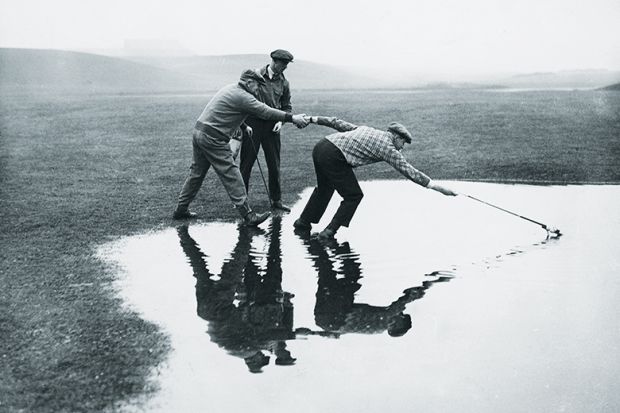Once the preserve of white, middle-class men, university campuses are now much more diverse places. While the demographics of universities have been transformed, institutions’ cultural norms have not shifted significantly; they remain geared towards the childless and the care-free.
However, a growing body of research shows that staff with caring responsibilities represent a significant presence in academia. They may be parents, but an increasing number spend many hours caring for a friend or a relative who has a chronic illness, a disability or who is elderly. Academics may also have multiple caring responsibilities.
The proportion of university staff dealing with these pressures is on the increase, too. The average age of the academic population is rising, bringing some more complex caring needs around elderly relatives, while more women – who traditionally undertake a disproportionate share of care work – are taking their place in the academy. However, with both academia and caring responsibilities demanding full loyalty and availability, it is unsurprising that many academic staff are beginning to feel the strain.
Funded by Advance HE and the Society for Research into Higher Education, I have spent the past few years interviewing academics doing their best to juggle work and personal commitments. One female academic recalled a “vivid memory of giving my daughter a bath while trying to read a research article” before eventually hurling the paper away. “I realised it was not going to work,” she said.
Others explained that balancing care and academic work meant that attending conferences was exceptionally difficult, and also that developing their research profile proved tricky, even when research leave and teaching-free semesters were provided.
Leadership and management positions are often deemed to be out of reach because of the culture of presence frequently characteristic of these roles. “Being head of department would be incredibly difficult…while I had a young child. I’m not even sure I want to do it now with an older child,” mused another female academic, who observed that the need to be “very, very physically present” precluded her from applying for leadership roles.
Sadly, carers at risk of being marginalised because they do not fit the “bachelor boy” ideal are also the ones whose needs are the least likely to be met. “I’d had a lot of years of caring for older relatives, including dealing with their deaths – it pretty much wore me down,” one academic explained.
So what can be done to help academic carers? In a recent film, produced in collaboration with the director Tim Bernard, and in two policy briefings about student and staff carers, developed with Hazel Price, a colleague at Anglia Ruskin University, I have explored how we can move from “care-free” to “care-full” academia.
To be effective, a policy intervention must be multidimensional and multilevel, meaning that carers should be represented throughout university structures. It must also acknowledge that care is not just an individual’s problem but rather relates to the social environment, while help should also be differentiated to reflect the diversities of carers’ lives.
On a more operational level, there are three key areas that require change. We recommend that the collection of data informing the experiences of carers be conducted at national and institutional level, following the example of Ucas and individual universities. Research funders should also encourage the development of qualitative research that fosters a deeper understanding of carers’ lives.
On a national level, the establishment of a working group should be encouraged, with the aim of developing a sector-wide strategy to raise awareness. A new national network could also circulate resources for practitioners, policymakers and individual carers. At institutional level, universities might establish a carers’ network for staff and students to share experiences and access information.
We also recommend that to “normalise” and recognise carers, universities adopt a mainstream approach to care, to ensure that policies are developed with carers in mind, acknowledging that we are all tied in relations of care. Research shows, for example, that timetabling, appraisals and workload allocations can be particularly detrimental to carers. Policies in these areas should be developed with staff and student organisations.
It is unlikely that a one-size-fits-all approach will work. Instead, universities should be encouraged to tailor a comprehensive care strategy, directly informed by institutional surveys. Specific attention should be given to those caring for ill, disabled or elderly friends or family members, as well as to single parents and those from different ethnic groups. Care work, carers and families come in all shapes and sizes, and it is key to the success of these policies that they reflect this diversity.
Bringing in this cultural change is necessary and timely. By acknowledging the needs of carers, universities can enhance the ability of their student and staff population to work without unfair barriers to success. A worthwhile endeavour, I say.
Marie-Pierre Moreau is professor of education at Anglia Ruskin University.
POSTSCRIPT:
Print headline: Time to be ‘care-full’ not ‘care-free’
Register to continue
Why register?
- Registration is free and only takes a moment
- Once registered, you can read 3 articles a month
- Sign up for our newsletter
Subscribe
Or subscribe for unlimited access to:
- Unlimited access to news, views, insights & reviews
- Digital editions
- Digital access to THE’s university and college rankings analysis
Already registered or a current subscriber?







